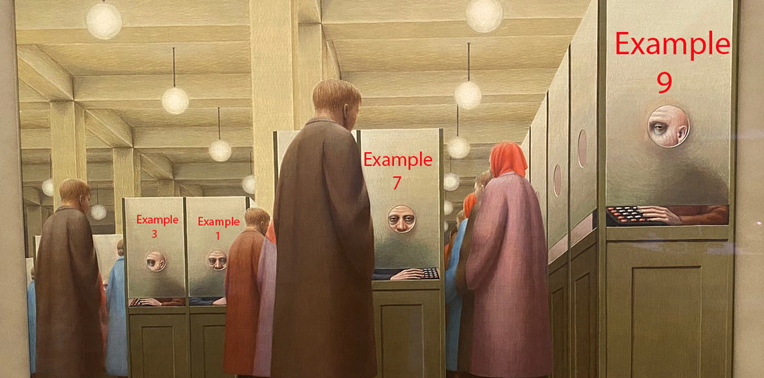All practices who participate in the new system will still be able to access MBS payments as they already do. And, by the way, it’s not mandatory, and it’s not capitation.
I am a GP in Canberra. I am one of the owners of East Canberra General Practice. I have been involved in the ownership of three other practices as well as the inaugural CEO of the Interchange Health Cooperative.
Since November 2023, I have been on the Expert Advisory Panel into the Review of General Practice Incentives by the Department of Health and Aged Care.
The EAP has had 13 meetings to discuss our recommendations and have prepared a report. We are now in the consultation phase where we’ve had two webinars and several roundtable discussions.
These webinars and roundtables have generated a lot of discussion in the general practice community. There seems to be quite a lot of misunderstanding about what the recommendations from the EAP mean and I am writing this to clear up some misconceptions.
To be clear these are my personal views and not the official view of the panel.
What this review is looking at are the recommendations from the 10 Year Health Plan 2022-2032 and the Strengthening Medicare Task Force which called for more multidisciplinary care and an increase in the proportion of funding going into general practice in the form of blended payments from 10% to 40% of the funding.
One of the things I want to clarify is what the 10% and 40% numbers mean.
Ten percent is currently the average value of the PIP and WIP going to general practices across the country, with 90% coming as fee-for-service payments.
What is envisaged is that for the practices participating in the new payment system, their average blended payment will go up to 40% of the total.
Currently, PIP and WIP are calculated on a SWPE basis but in the new system, the payments will be weighted by the socioeconomic profile of the patient population. That means that for practices that see a lot of patients who are socioeconomically disadvantaged, that percentage could very well be much higher. This translates to a lot of extra funding to create a much larger multidisciplinary team.
There has been some use of the “capitation” which one of my fellow members of the EAP, Ms Tracey Johnson, the CEO of Inala Primary Care has tried to dispel.
My understanding is that capitation refers to payments made to health services based on the population linked to that service which is then meant to cover all the costs of providing services to that population. Such a system operates in the NHS in the UK.
With the recommendations that this EAP has come up with, all practices who participate in the new system will still be able to access MBS payments as they already do which we anticipate will still provide most of the income of the GPs working in these practices.
What will change will be much more funding to employ a larger multidisciplinary team.
Another point I want to make very clear is that we have recommended that participation in the new system will be entirely voluntary.
For practices who don’t see any benefit to participation and would prefer to continue with the current system of PIPs and WIPs, they can. We anticipate that practices that service populations that have greater complexity and disadvantage will see greater benefit in participation and will be more enthusiastic about participation.
Obviously, having a larger multidisciplinary team will change some of the ways that GPs in those practices work. There will be a requirement for greater levels of coordination and care planning. In anticipation of this, we have recommended that the blended funding that general practices get can be used to pay GPs for their time being involved in coordination and care planning.
There has been some concern about how payments to GPs under the new system will affect payroll tax, and that these new payments could be interpreted as a salary to GPs.
To me, a salary implies a regular fixed payment for a certain number of regular hours worked, whereas it would seem to me that any payments to GPs for coordination and care planning would be more like a contractual payment.
Regardless, it would certainly be additional income for GPs and under the payroll tax rules that now apply in virtually all states and tTerritories, it would be subject to payroll tax.
I had suggested in one of the webinars that in the new system, GPs could potentially devolve some of their less complex work to other members of the team so that they can focus on more complex patients. Exactly how that would work out will be tackled in the implementation phase of this review and will also be informed by the work of the Scope of Practice review that is currently ongoing.
I know that this would seem like a major break with the way that GPs and patients currently interact. I know that there is a narrative among GPs of seeing their patients for everything and by doing that, developing a stronger relationship with their patients and sometimes serendipitously learning something about their patients that was not the apparent purpose of the consultation.
Related
I understand that narrative. But I will say to my fellow GPs that there are examples of multidisciplinary team care that work well too. Aboriginal medical services, drug and alcohol clinics and sexual health clinics are examples that come to my mind of where multidisciplinary care already happens.
Another recommendation from our EAP is for accreditation of non-traditional practices so they can enrol patients into My Medicare. Examples of this would be nurse practitioner-run clinics in remote areas of Australia. We have the view that if a practice is providing holistic primary care, it should be accredited so the patients it services can receive all the services they need.
I know that change always breeds uncertainty. But I would argue that this change will benefit the practices that need it and not adversely affect the practices that don’t want it. I think it’s hard to argue that practices that serve large cohorts of disadvantaged communities should not get more support to do the work they do. So, I hope that the GP community will support this reform.
Dr Clara Tuck Meng Soo is a GP in Canberra. She is a co-owner of the East Canberra General Practice. She is a member of the Expert Advisory Panel into the Review of General Practice Incentives.





